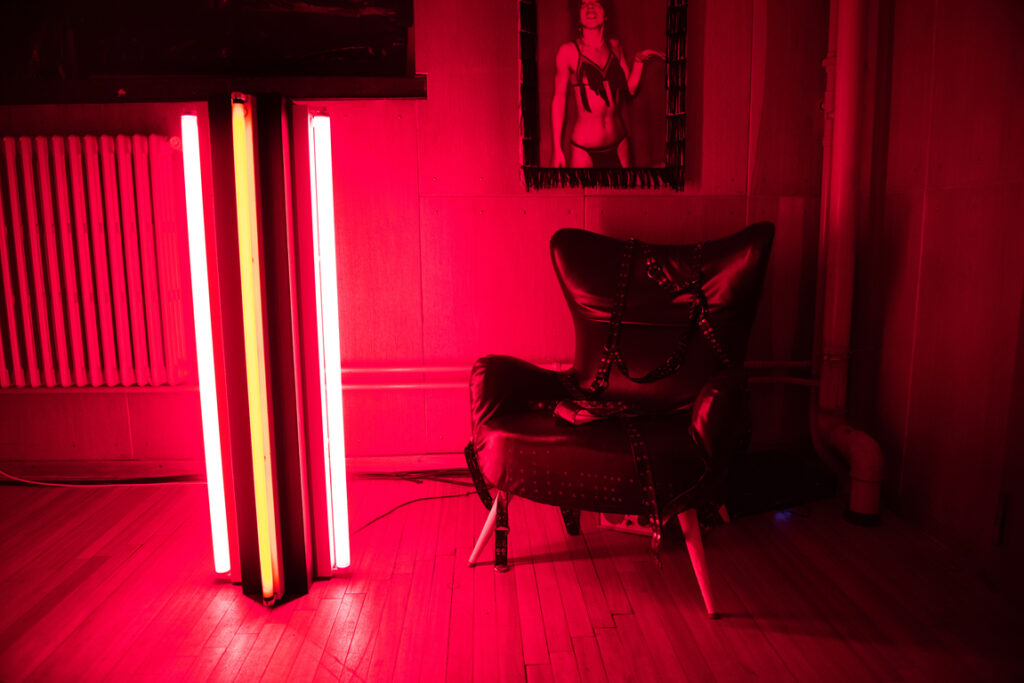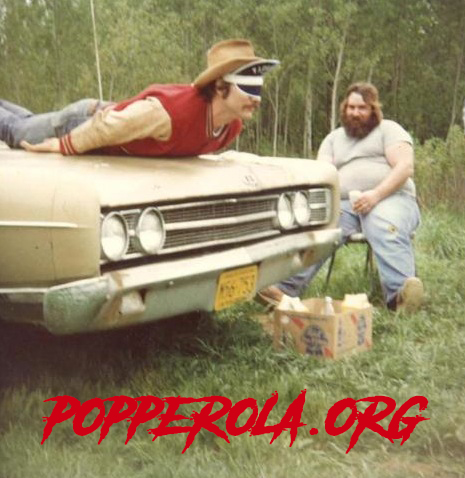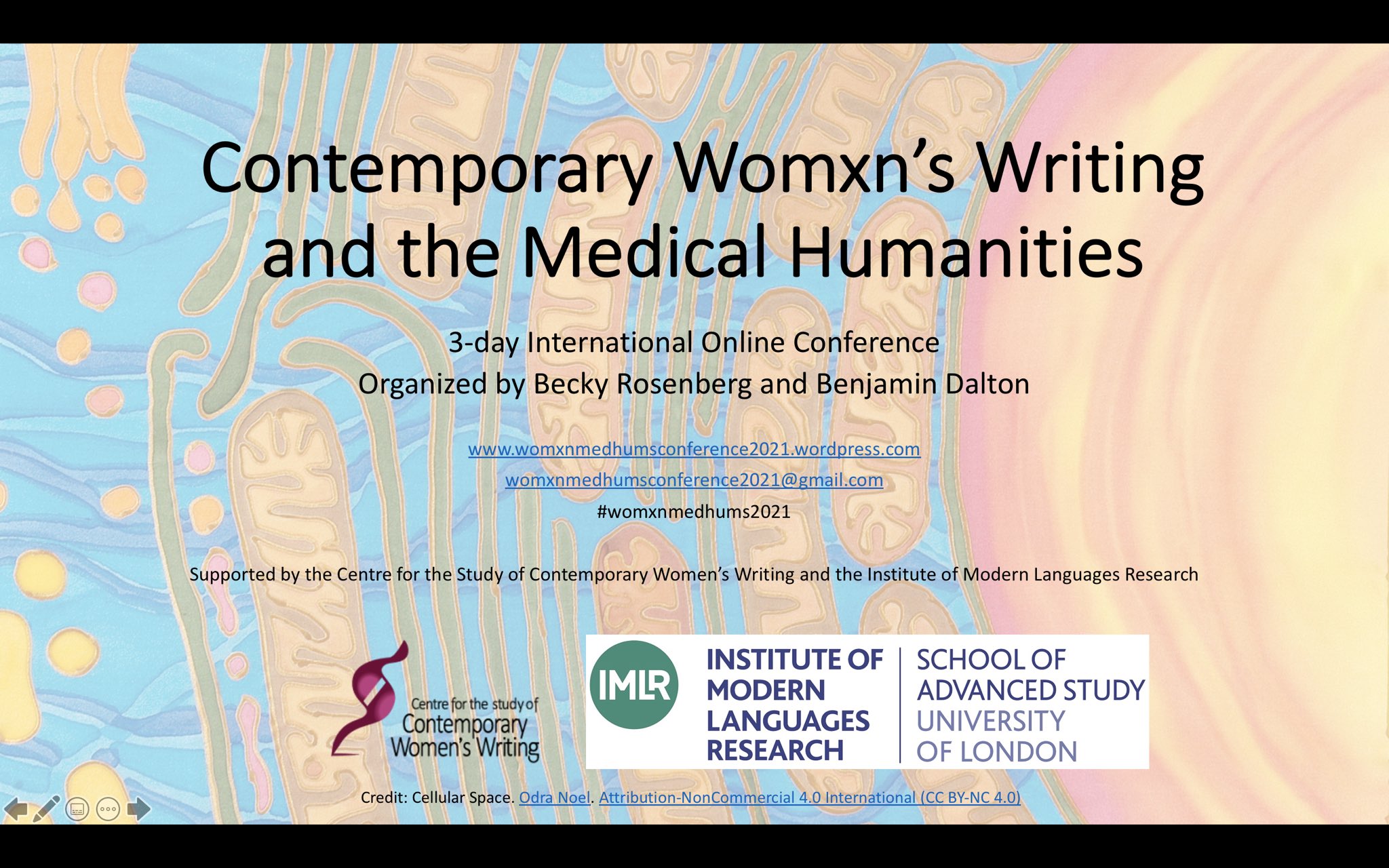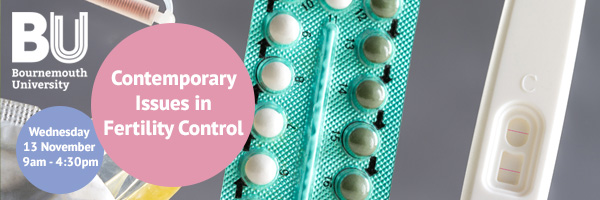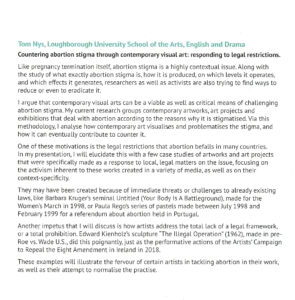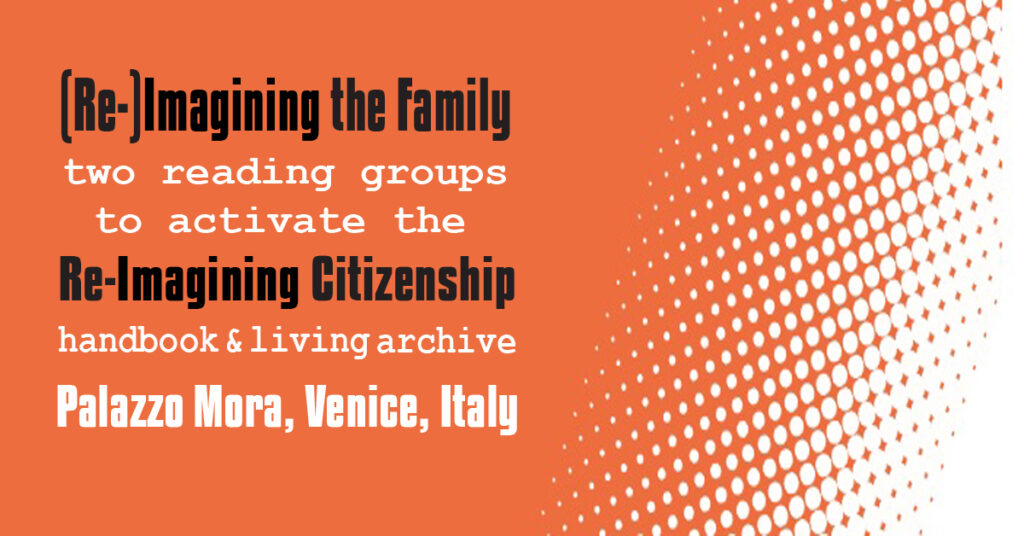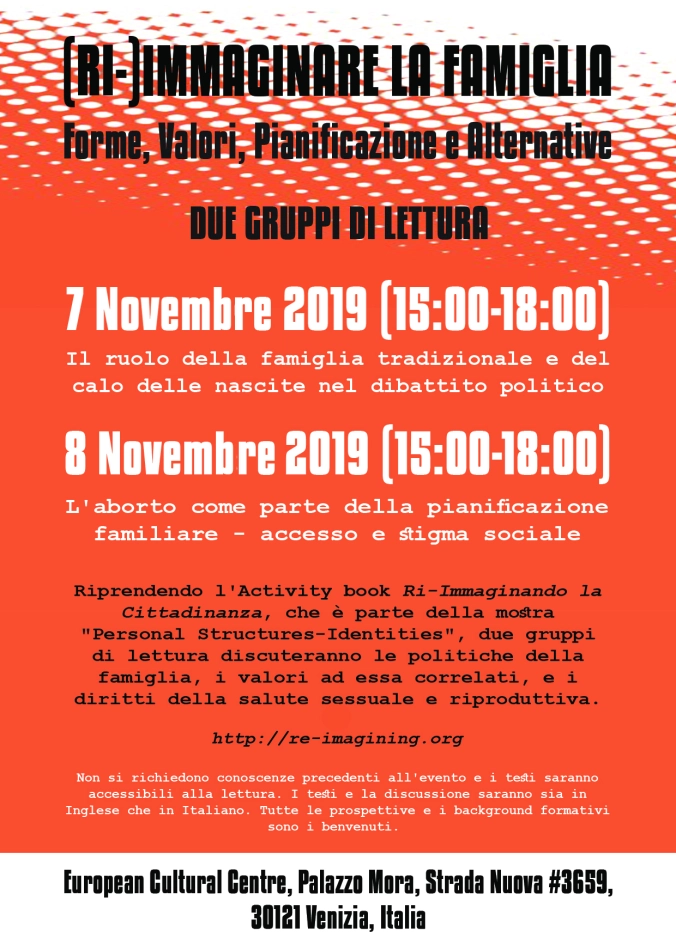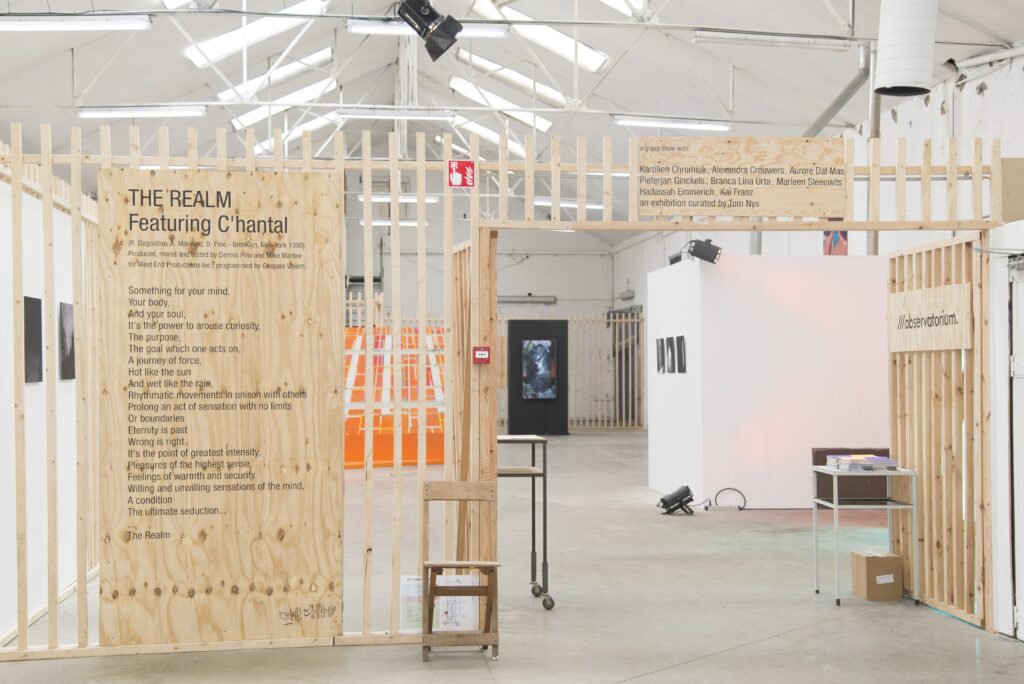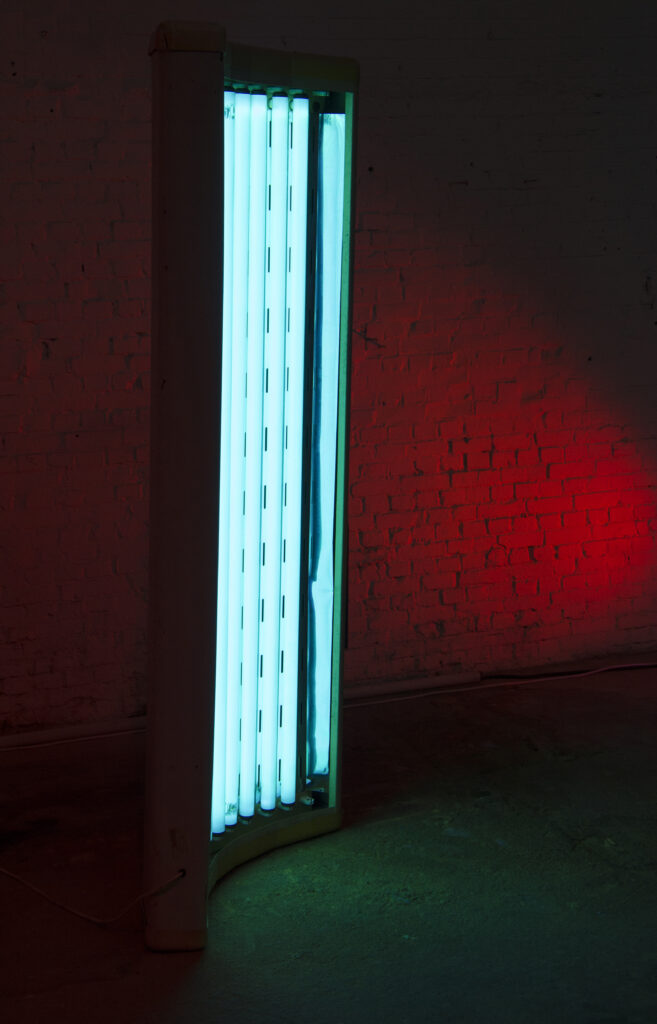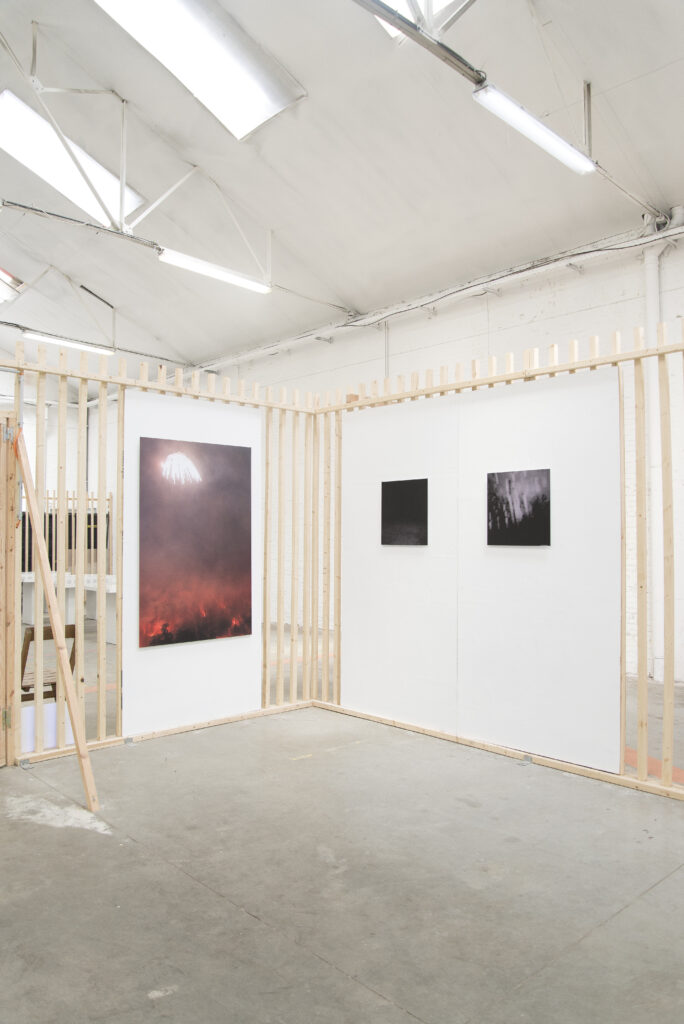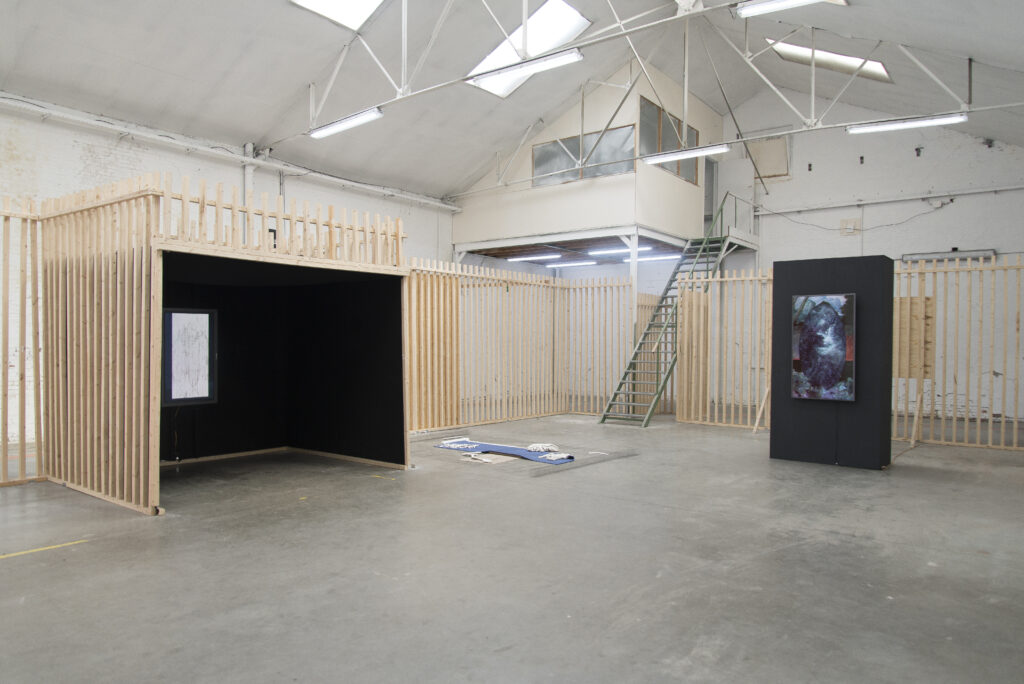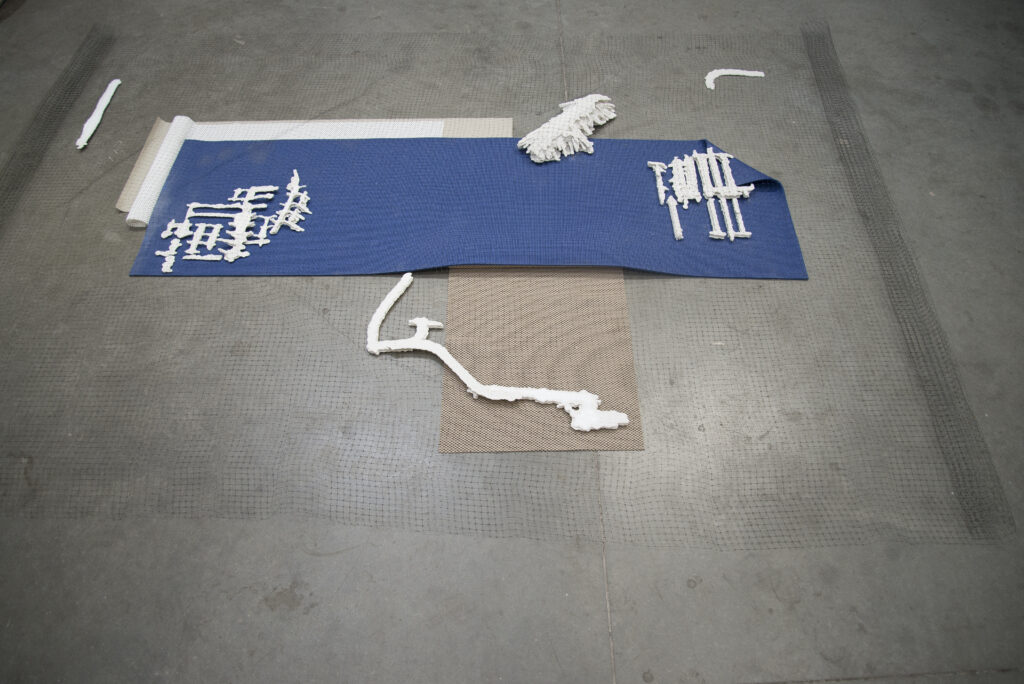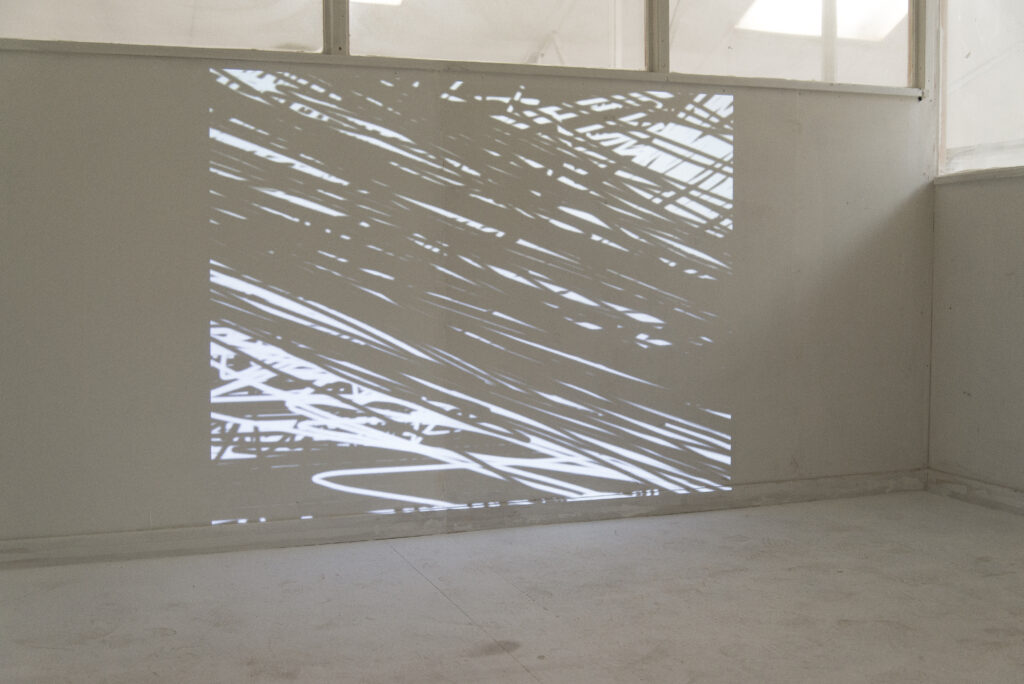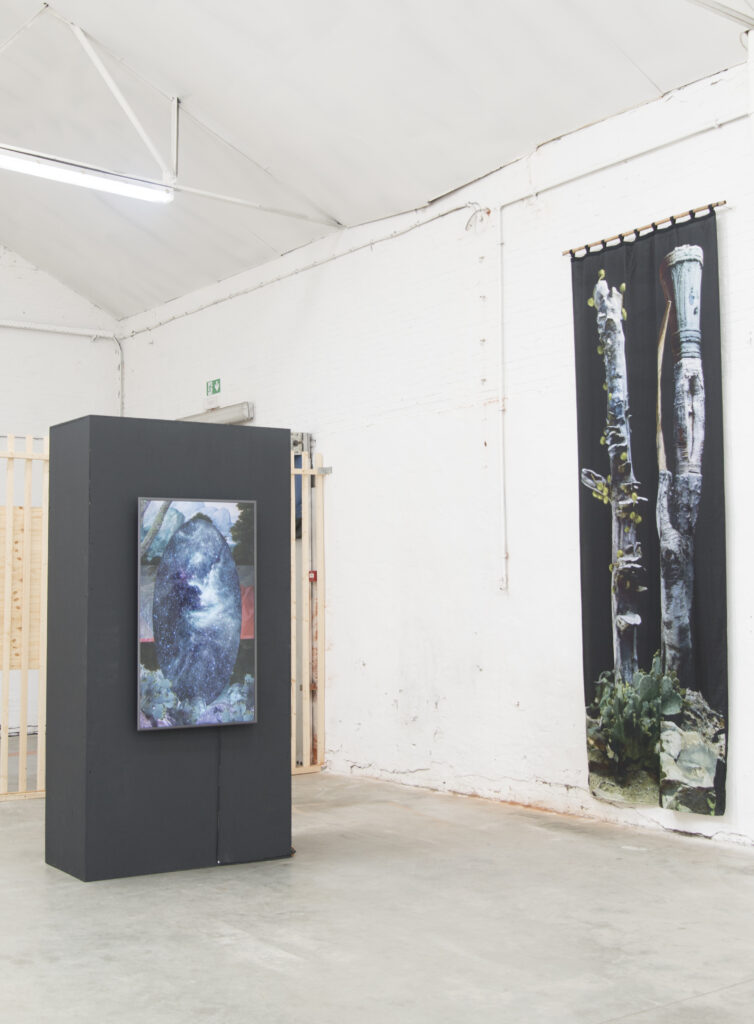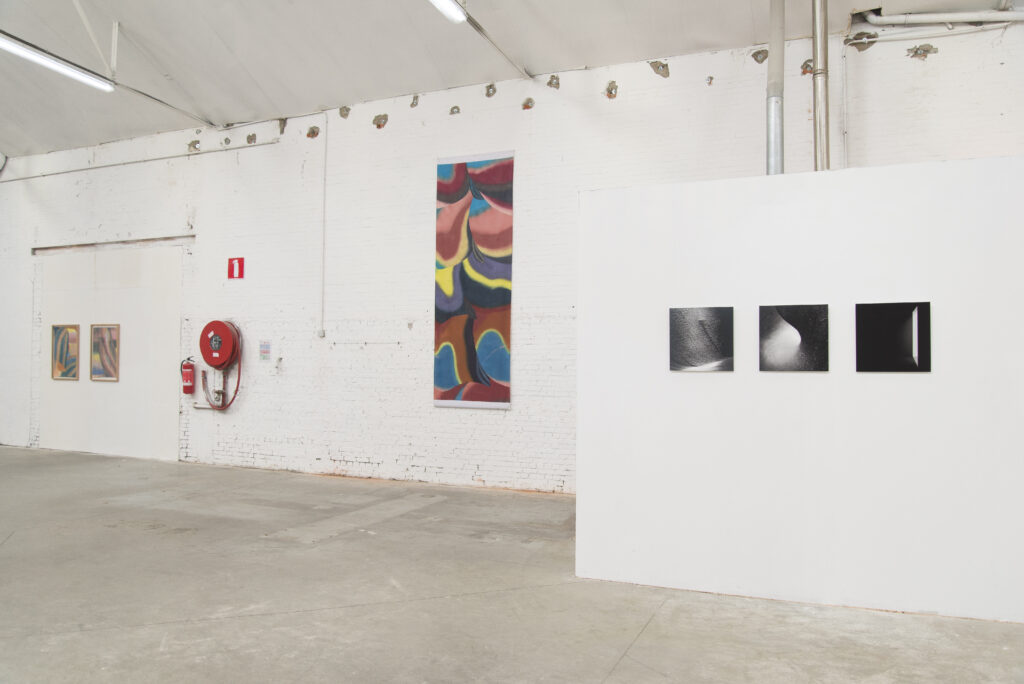When artist Maaike Leyn’s father-in-law passed away, she and her husband fell heir to an extraordinary work of art by Belgian Liliane Vertessen.
It had been commissioned in the early 1980s by her partner’s father, who worked as a psychiatrist, and it had found a place next to his home office. As such, this was rather peculiar, since the artwork is an arrangement that is akin to a seedy boudoir, consisting of erotic self-portraits of Vertessen, a chair with leather BDSM restraints and neon lighting.
Leyn was challenged by the practical implications of this inheritance but was also intrigued by the piece itself; and it certainly raised a lot of questions. She decided to channel these into a podcast entitled Lilian-eum, the name convivially given to the artwork by the family. In the twenty episodes of the podcast, she embarks on an investigative quest attempting to unravel the origins of the Lilian-eum, why it was installed where and how it was, as well as figuring out its place in Liliane Vertessen’s oeuvre. Furthermore, she seeks to contextualise it in the artworld of that time as well as inquire into the socio-political climate in which it was created.
Hence, there are two lines running through the podcast, which intertwine perfectly in the narrative Leyn construes. One is the personal aspect (the search for who her father-in-law was, why he and his wife wished this artwork to be made, what her partner’s recollections of it are, and why Maaike and her partner finally inherited the installation), the other is an art historical investigation in the broader tradition of Michael Baxandall (who is this artist Liliane Vertessen and what were the conditions that instigated her to create a work like this during that particular time?).
The number and nature of the interviewees that can be heard on the podcast is impressive – there are museum officials and other art world insiders, artists, a psychiatrist, different collectors, art critics and academics. And last but not least, in the final episodes, Liliane Vertessen herself, rounding up Leyn’s mission in a most satisfactory way. Moreover, sound artist Stijn Demeulenaere did a wonderful job tying all stories together with some intricate and excellent editing work.
I am very honoured to have been part of Leyn’s journey as one of the people interviewed. In my segments, I discussed the tense years of the early 1980s in Belgium (the high inflation, the cold war atmosphere, the deadly guerilla actions of the Cellules Communistes Combattantes, the horridly violent and still unresolved robberies of the Gang of Nivelles, and so on), as well as outspoken feminist tendencies and discourses in the art world and beyond at the time including the so-called sex wars, the relation of Vertessen’s work to the picture generation that made waves back then, and punk aesthetics.
Last Sunday, 29 October, Maaike Leyn introduced the podcast at Mu.ZEE (https://www.muzee.be), the museum of art in Ostend, Belgium, which owns a few of Vertessen’s works. The real kick-off, however, will be on Saturday, 11 November 2023 at the Podcast Festival of the Flemish newspaper De Standaard, also in Ostend (see: https://podcastfestival.standaard.be/nl/line-up/het-lilian-eum-premiere/201 – website in Dutch).
- © Giannina Urmeneta Ottiker
- © Giannina Urmeneta Ottiker
The full list of episodes is as follows:
Part 1
Episode 1: Phyline Deldycke, Anais Isebaert, Dirk De Wachter
Episode 2: Bart De Baere, Anais Isebaert and Emmanuel Isebaert
Episode 3: Phyline Deldycke, Paul and Marie-Rose Declercq
Episode 4: Phyline Deldycke
Episode 5 and 6: Francis De Beir
Episode 7: Mieke Mels, Anny T’Jampens, Leo Copers
Episode 8: Paul and Marie-Rose Declercq
Episode 9: Elke Helbig, Tom Nys, Mieke Mels, Ria Pacquée
Episode 10: Anny T’Jampens
And of course, Liliane Vertessen herself.
Part 2
Episode 12: Mieke Mels and Tom Nys
Episode 14: Dirk Pultau
Episode 17: Dirk De wachter
Episode 18: Philip Vandenberghe and Rik Sadet
Episode 19: Frank Hendrickx, Tijs Lammar
Episode 20: Bieke Demeester
And Liliane Vertessen.
For those who understand Flemish/ Dutch (as this is the language used in the podcast), I most highly recommend giving it a listen, even if you are not particularly interested in art; it is indeed an absorbing tale. It will be available on several platforms, just look out for it.



